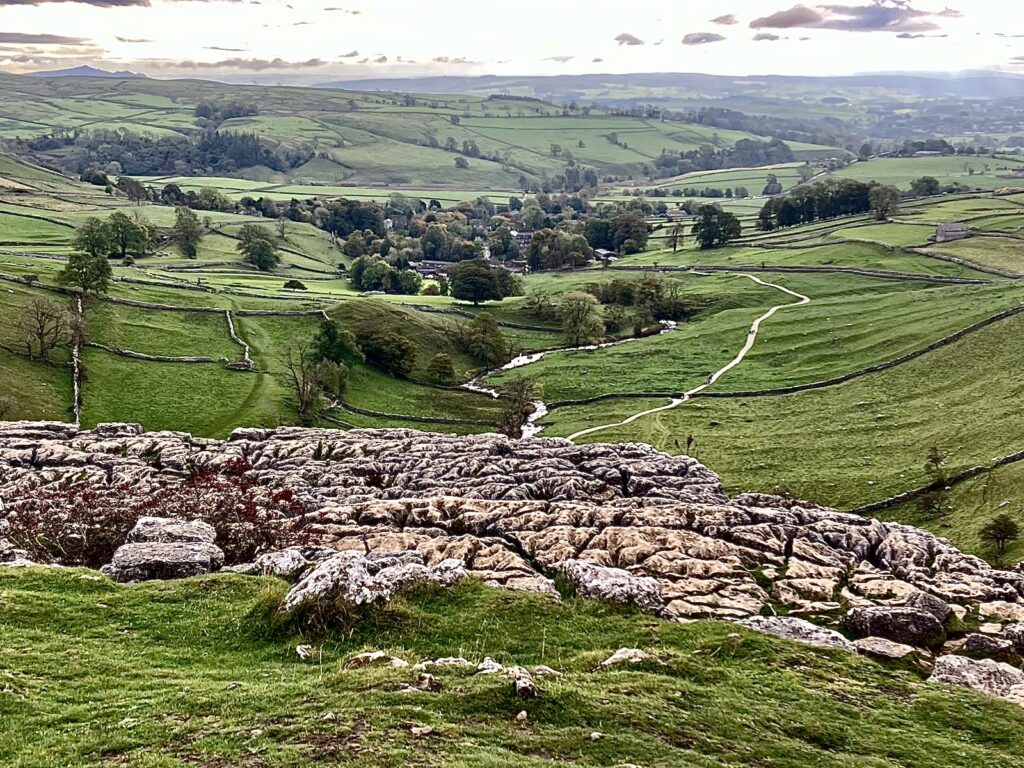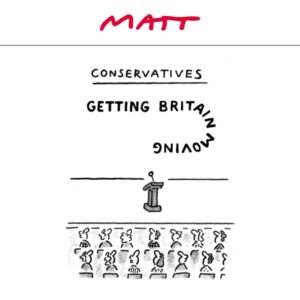Pavement view

As seen by Fiona from the limestone pavement above Malham Cove in the Yorkshire Dales.
Quote of the Day
“If you wish to forget anything on the spot, make a note that this thing is to be remembered.”
- Edgar Allen Poe
Musical alternative to the morning’s radio news
John Mayer and Ed Sheeran | Slow Dancing in a Burning Room
Long Read of the Day
Managing AI Risks in an Era of Rapid Progress
If you follow these things you will know that the UK government is hosting an ‘AI Safety Summit’ on November 1st & 2nd in, of all places, Bletchley Park. Lots of people have been using this as a peg on which to hang essays on various aspects of “the AI problem”.
Having waded through a good many of these, I’ve come to the conclusion that this paper by an interesting group of experts is the most useful background read.
Here’s how it opens:
In 2019, GPT-2 could not reliably count to ten. Only four years later, deep learning systems can write software, generate photorealistic scenes on demand, advise on intellectual topics, and combine language and image processing to steer robots. As AI developers scale these systems, unforeseen abilities and behaviors emerge spontaneously without explicit programming. Progress in AI has been swift and, to many, surprising.
The pace of progress may surprise us again.
Worth your time.
Books, etc.
My definition of ‘ideology’ is that it’s “what determines how you think when you don’t know you’re thinking”. Musing on its role in politics the other day I came on Thomas Sowell’s book, A conflict of visions: ideological origins of political struggles, which looks interesting. Here’s how its publisher described it:
Thomas Sowell’s “extraordinary” explication of the competing visions of human nature that lie at the heart of our political conflicts (New York Times)
Controversies in politics arise from many sources, but the conflicts that endure for generations or centuries show a remarkably consistent pattern. In this classic work, Thomas Sowell analyzes this pattern. He describes the two competing visions that shape our debates about the nature of reason, justice, equality, and power: the “constrained” vision, which sees human nature as unchanging and selfish, and the “unconstrained” vision, in which human nature is malleable and perfectible. A Conflict of Visions offers a convincing case that ethical and policy disputes circle around the disparity between both outlooks.
Hmmm… Sowell is at the Hoover Institution at Stanford, a bastion of conservative thinking. It’ll be interesting to see how this mindset plays out in the book.
My commonplace booklet
The semiotics of kitchen design
The FT had a nice piece recently (behind the paywall) on the relentless expansion of kitchen ‘islands’ in the dwellings of the affluent bourgeoisie.
“These days, the more luxury dwellings I visit, the more I find that the size of the kitchen island is in direct proportion to the lack of cooking (or eating) actually done in the kitchen. The nuclear family has atomised and mealtimes happen elsewhere — on the sofa, in the bedroom, at a desk while checking emails — with everyone eating at different times. The island is a symbol, an idea of informal family life embodied in a deathly slab of marble, a funeral bier for food.”
Linkblog
Something I noticed, while drinking from the Internet firehose.
A day in Pompeii
Amazing computer animation of what happened in 24 hours. Obliteration in 8 minutes. Reminded me of Robert Harris’s thriller, Pompeii — which I strongly recommend.
UK politics update

From the Daily Telegraph a year ago.
This Blog is also available as an email three days a week. If you think that might suit you better, why not subscribe? One email on Mondays, Wednesdays and Fridays delivered to your inbox at 6am UK time. It’s free, and you can always unsubscribe if you conclude your inbox is full enough already!
